This ‘seed woman’ never went to school, but has valuable lessons for us and the farmers
Rahibai Popere, who lives in a small Adivasi village in Maharashtra, is all set to win the Padma Shri. She has been preserving indigenous seeds that need only water and air to grow
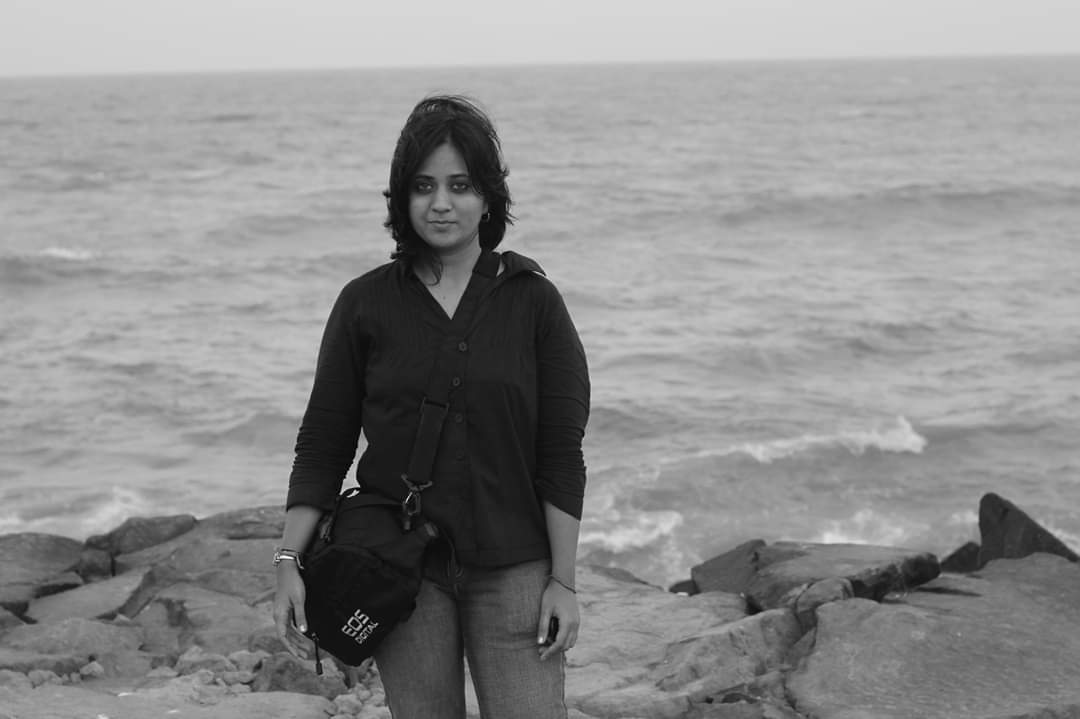
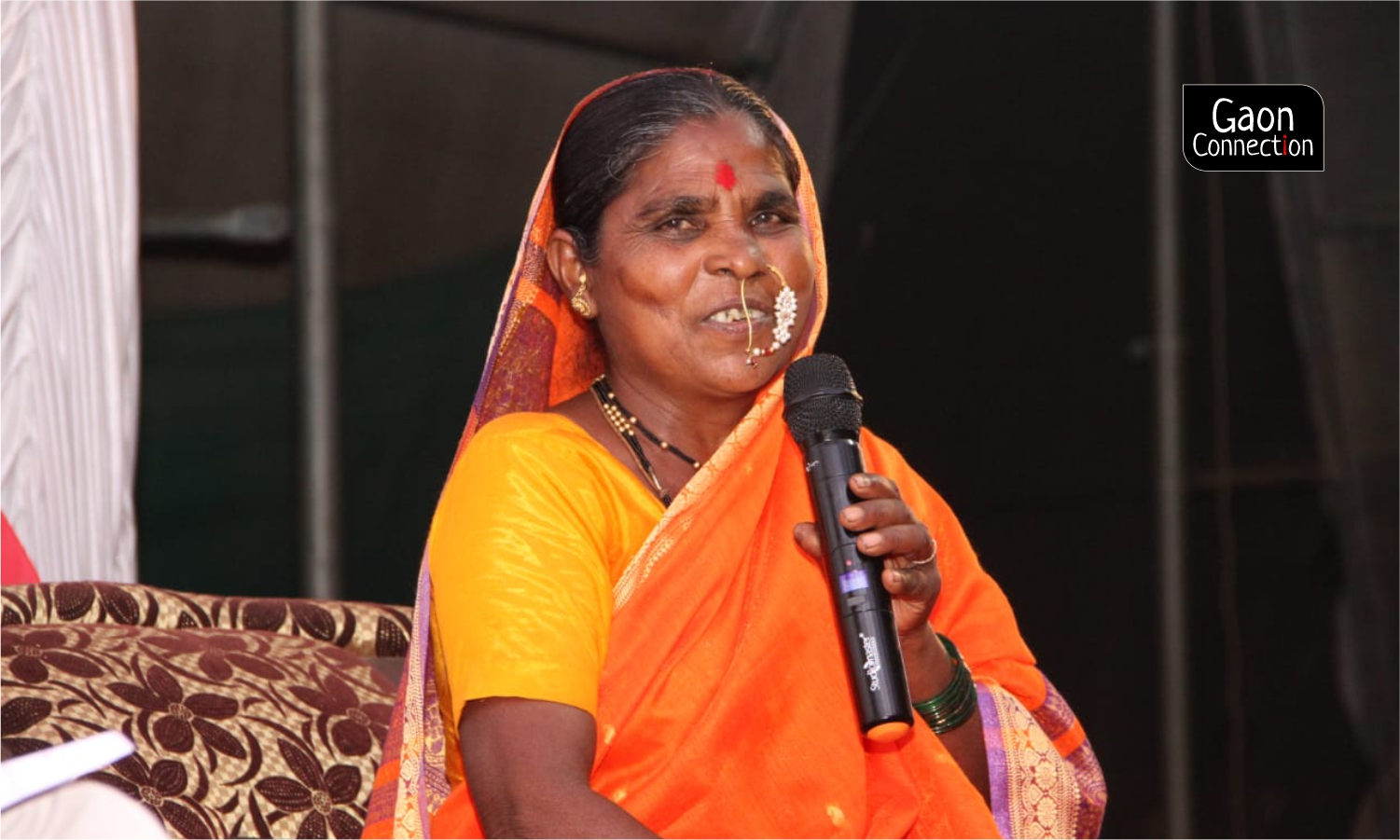
“It’s a small Adivasi village, beta (daughter), on the top of a mountain. There is no approach road to reach my village. When a big car comes, I get worried. There are too many potholes, and big ones. I have told the authorities many times to make a road. Let’s see when that happens,” said Rahibai Popere over the phone.
Rahibai’s phone hasn’t stopped buzzing ever since the announcement that she will be honoured with the Padma Shri — the country’s fourth-highest civilian award — for her contribution to agriculture, and she patiently gives interviews.
“I am illiterate. I never went to any school, but I try to give interviews because I want my knowledge to reach each and every farmer of this country,” she said and corrects us when we congratulate her on winning the Padma. “No, no … I haven’t won. It has just been announced.”
Working from her remote village — Kombhalne in Ahmednagar’s Akola tehsil, about 125 km from Pune in Maharashtra — Rahibai is taking farming back to its roots. She is known as the “seed woman”, who has pioneered a movement to preserve indigenous seeds. She has 114 varieties of 53 crops, preserved in traditional ways.
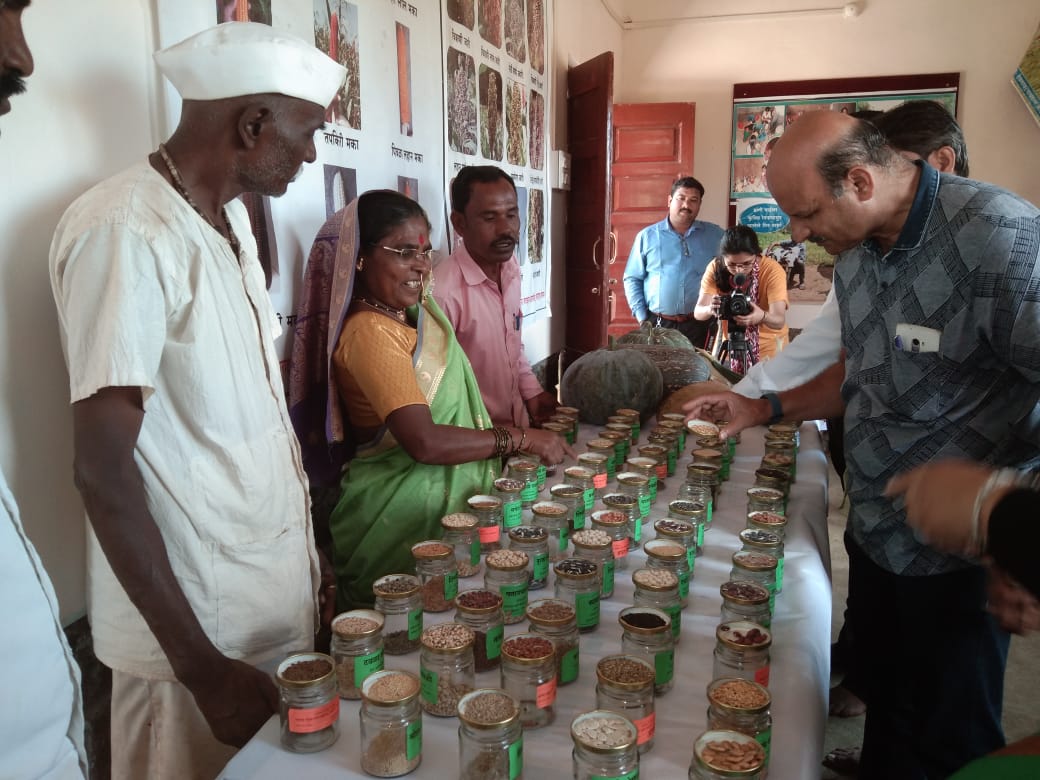
“I don’t remember when exactly I started collecting seeds because I don’t know how to count, but I think it must have been 20-22 years back,” she said. “My grandchildren would keep falling sick. There were malnourished children around me, which was never the case. I realised that it was happening because all of us were using too many pesticides and chemical fertilisers. Ours is a small village and most of us are into farming. That’s our only source of income. People wanted to earn more so they were rampantly using chemical fertilizers. We were practically eating poison.”
The indigenous crops that she talks about need only water and air to grow, but hybrid crops require more water and chemical fertilizers. “No one taught me this. My father used to say ‘old is gold’, so I started preserving these seeds. You don’t get old varieties of rice and some other grains anymore in the market. But I have them all,” said Rahibai, who has planted around 500 trees around her house.
Initially, the women in her village laughed at her, but she persisted. Gradually, people started talking about her. The word about her work started spreading to other villages and then the authorities started taking note of this. Soon, people started calling her to talk about her work.
Even then her family – comprising her husband, three sons and a daughter – would wonder what was she up to. “But they never stopped me. Soon I started winning awards. My house was so small that I didn’t have space to keep the awards or my seed collection. Some politician – I don’t remember his name or who he is – helped me build a bigger house.”
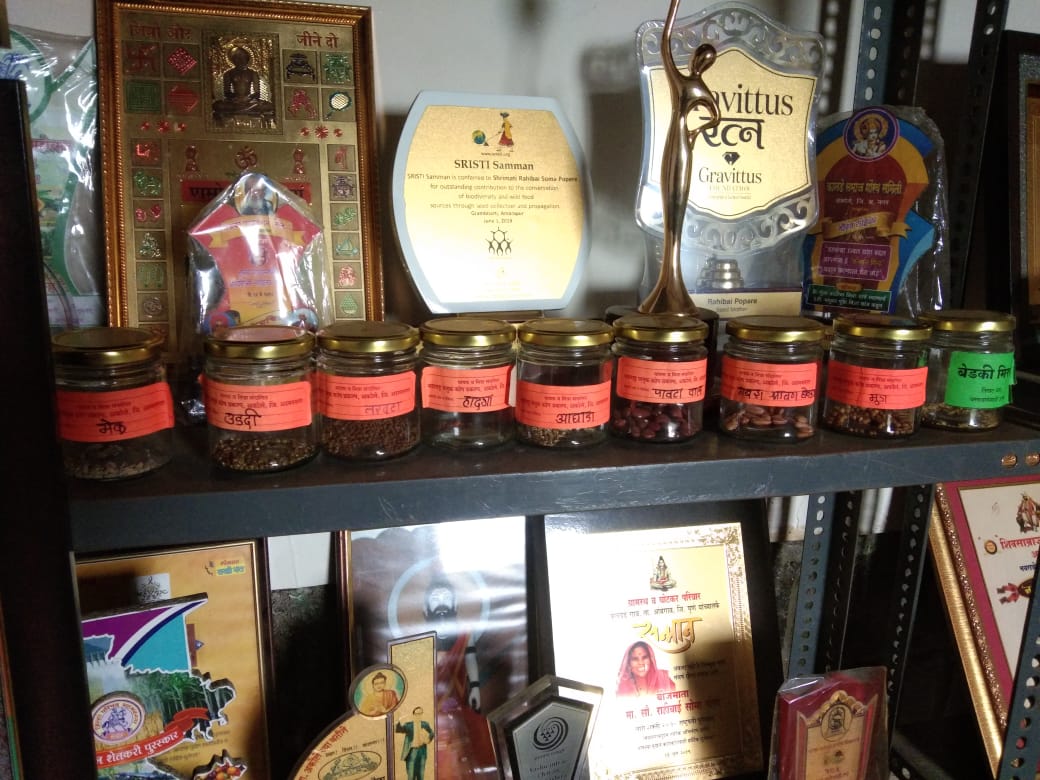
Now, many people come to her to buy seeds. “People come from all over the country. For decades, I have provided them with these seeds for free. But now I have to think about my family as well. So, it’s only now that I have started charging. My sons have started looking after the seed bank. They entertain the guests that come to our house. At times, the guests stay back to see the kind of work that we do. Since I never went to school, I don’t know what to talk to these people. My sons deal with them.”
Rahibai does not know her age. “I think it’s 50 or 60 or 70. I am not sure. I don’t have any papers. I was born in this village and this is where I got married.”
Has she ever considered moving out of the village or wanted her sons to take up some other profession? “Where would we go? We are poor people. Who will give us a place to live? I never had enough money. Had that been the case, my sons could have done something else,” she said.
After successfully implementing all that she learnt, Rahibai now trains farmers and students on seed selection, techniques to improve soil fertility and pest management. She supplies farmers with seedlings of native crops, encouraging them to switch to native varieties. She tells them the benefits of traditional farming and irrigation techniques — measures she believes will help crop growers mitigate the impact of climate change, and focus on native species of seeds.
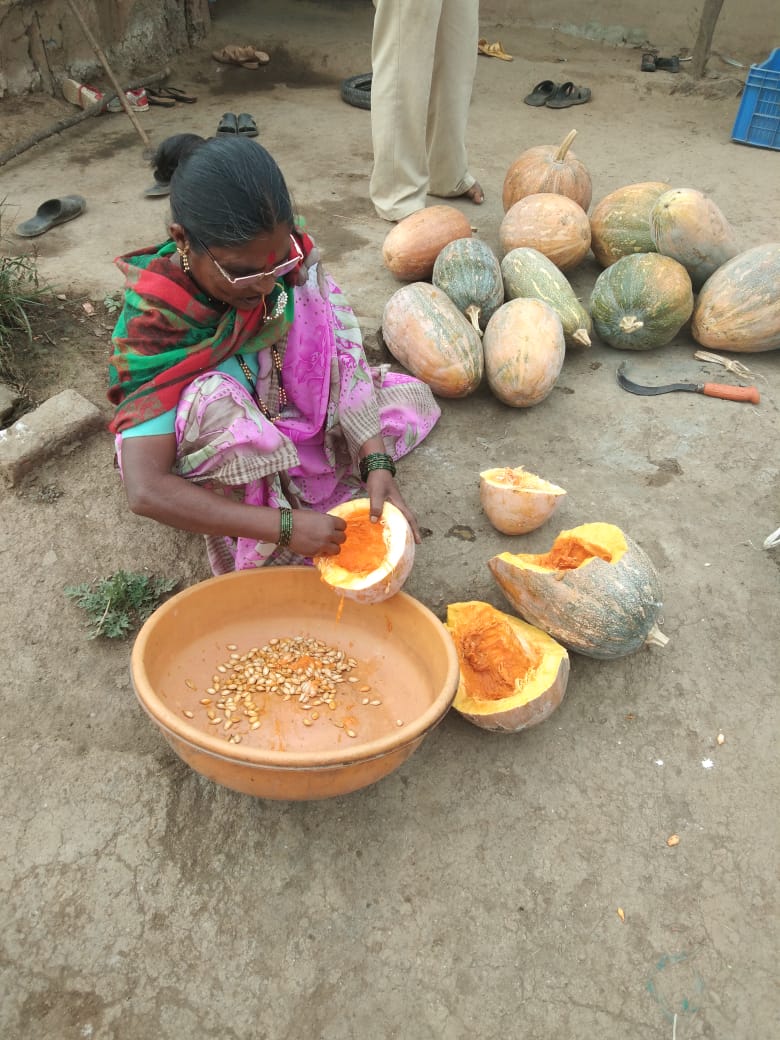
She has formed a self-help group (SHG) named ‘Kalsubai Parisar Biyanee Samvardhan Samiti’ to conserve native seeds. She heads another SHG, ‘Chemdeobaba Mahila Bachat Gat’ in Kombhalne, through which many social initiatives like health camps and solar lamp distribution are organised, besides the agricultural initiatives. Around 13,000 women are now working with her.
“This Padma Shri is not mine. This belongs to all these women. I will keep working for them, the farmers and the black soil of this region, which has given me all that I have today, until my last breath.”
When asked if she could share some of her pictures, she made an honest confession. “I don’t know how to do all that. All I know is how to take and answer calls.”
For now, her big concern is that approach road to her village. “I am not happy with the politicians. The least they could have done is to make an approach road to my village. Simply because when big cars come, I get worried. There are too many potholes, and big ones.”

